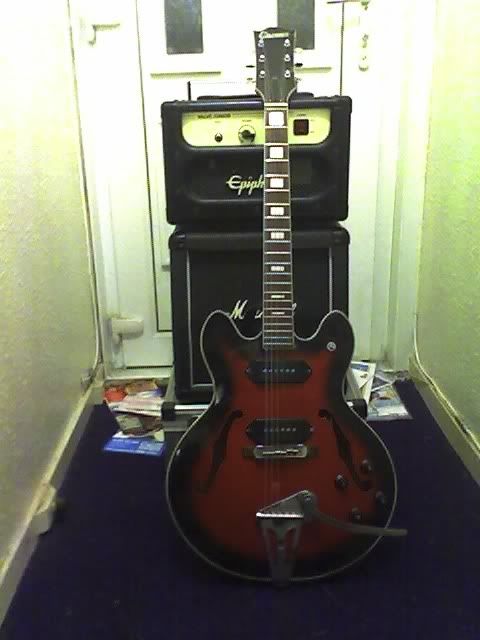called silver series. Japan in 1978.
fretless
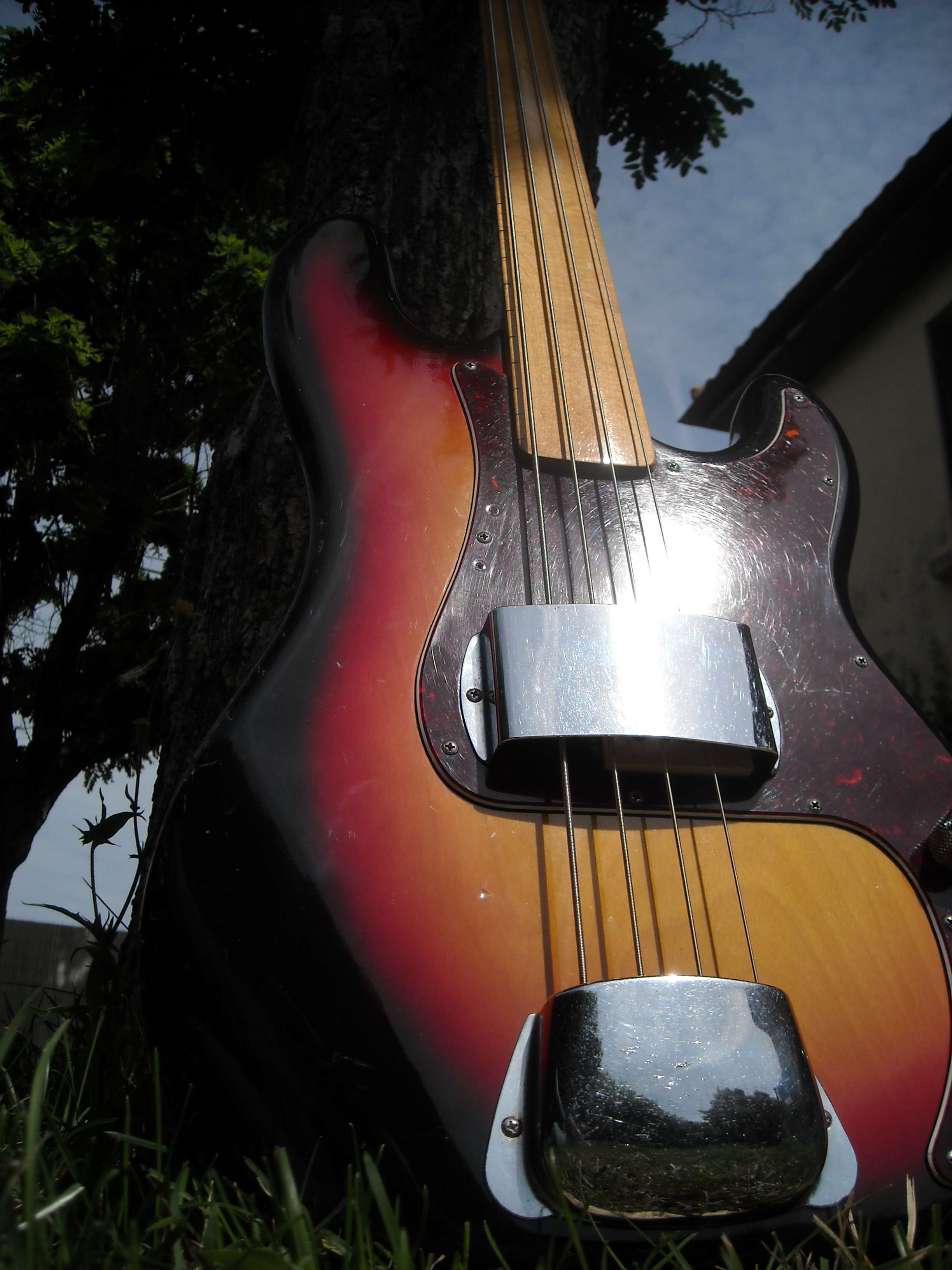
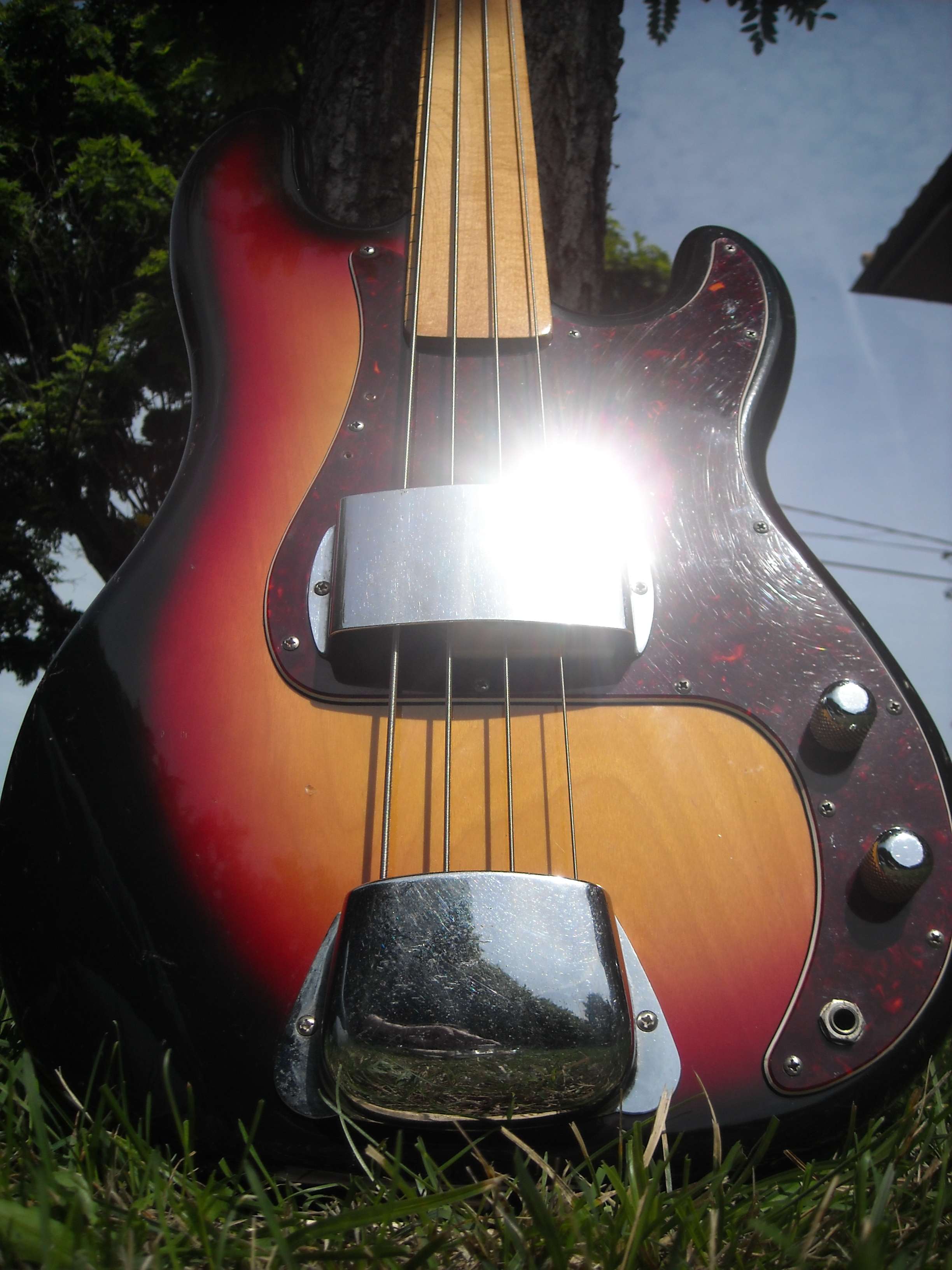
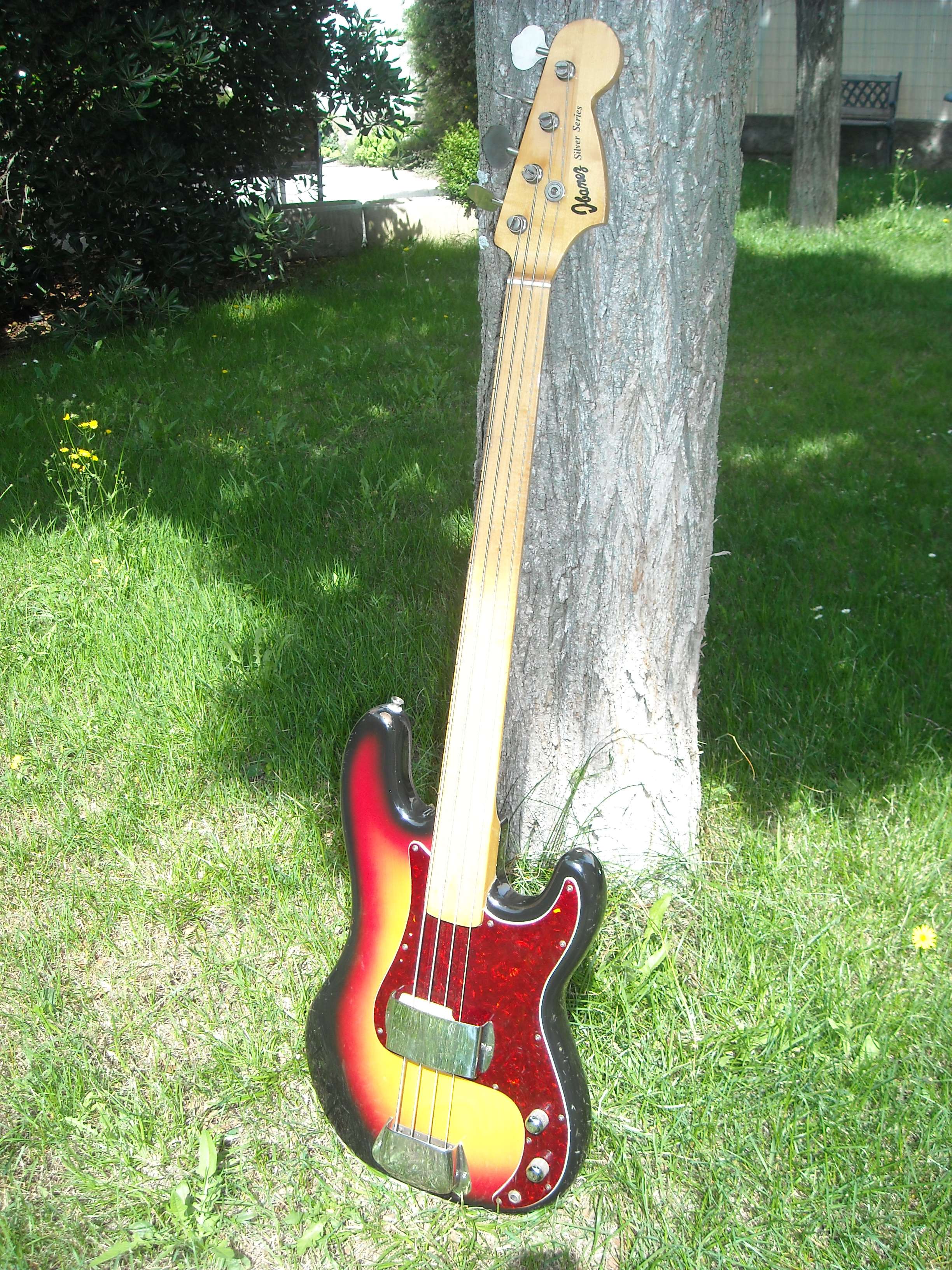
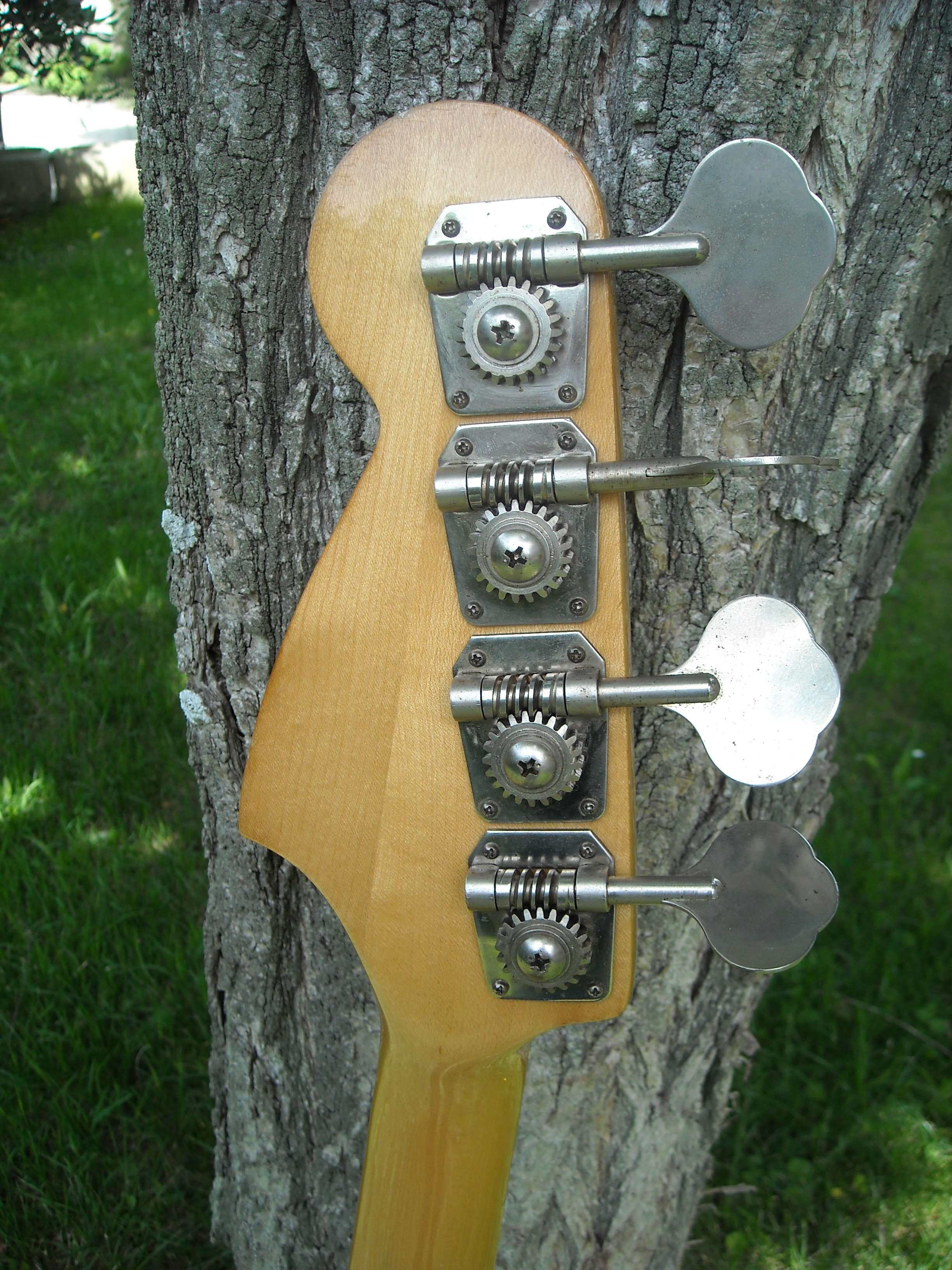
the bass was stopped after trial justice.







Your guitars are incredible... especially the ES-330. Question, how do the WRHBs in the Telecaster compare to the originals?MT wrote: '74 Greco Thinline Tele
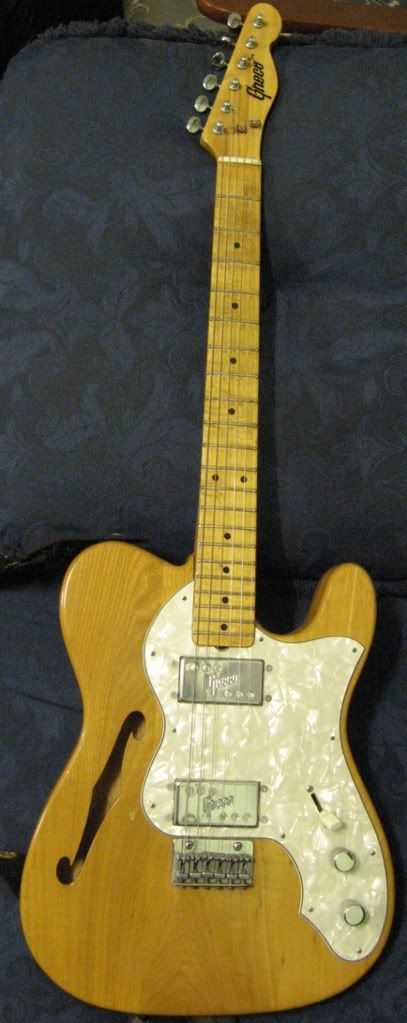

Are you serious!!! you have two? I have an incredible amount of envy radiating towards you at the moment... I wish I could find a Grecobacker 360/12 or a 620... but I don't think they made them.Tonebender wrote:
There's always a couple of Burny and Greco LP Customs on eBay... I've always had a soft spot for the Burst on a custom... You sir, are very lucky to own that...Stereordinary wrote:Now we're talking!
That's awesome... who made it?noisepunk wrote:
that's got some of the nicest tort...tyoac wrote:/quote]
That's really clean... and '84 is when Tokai were making some of their best stuff... you've got a really cool tele there...
alain wrote:Ibanez Lawsuit
called silver series. Japan in 1978.
fretless
the bass was stopped after trial justice.

That's pretty cool... I also read in a magazine that Fender filed a lawsuit aswell, but I can't remember why...serial wrote:As a bit of legal/guitar trivia, there was ONE lawsuit filed-in the Eastern District of PA (Fed Ct-Philadelphia), Gibson v. Elger. The basis of the lawsuit was that Elger (Ibanez) infringed on Norlin/Gibson's open book style headstock shape. I've read the complaint-nothing actually happened with the suit other than the filing of the complaint, but Ibanez made the business decision to go ahead and change their design.
Lots of guitars are called "Lawsuit" guitars, but in reality, only the ones with Gibson-style heads were subject to thd original suit that went nowhere.
Funny to see some of the wild narratives on eBay. . The term has been used forever to refer to all 70s copy guitars. The other myth is that all or most "lawsuit" guitars are better than what they're copying. That's rarely if ever actually the case in my experience (and I've owned and experienced tons of both), but there's something inherently "fun" about playing them. The best of the copies can be better than poor examples of the Gibsons or Fenders they emulate, but the electronics pickups are often inferior ( usually pretty microphonic). The best "lawsuit" guitar I owned was a killer '75 Ibanez Destroyer. I miss that guitar...

"Are you serious!!! you have two? I have an incredible amount of envy radiating towards you at the moment... I wish I could find a Grecobacker 360/12 or a 620... but I don't think they made them.22danielp wrote:Tonebender wrote:


I was about to be the guy harping on about the 'lawsuit' misnomer, but I see someone else beat me to it....serial wrote:As a bit of legal/guitar trivia, there was ONE lawsuit filed-in the Eastern District of PA (Fed Ct-Philadelphia), Gibson v. Elger. The basis of the lawsuit was that Elger (Ibanez) infringed on Norlin/Gibson's open book style headstock shape. I've read the complaint-nothing actually happened with the suit other than the filing of the complaint, but Ibanez made the business decision to go ahead and change their design.
Lots of guitars are called "Lawsuit" guitars, but in reality, only the ones with Gibson-style heads were subject to thd original suit that went nowhere.
Funny to see some of the wild narratives on eBay. . The term has been used forever to refer to all 70s copy guitars. The other myth is that all or most "lawsuit" guitars are better than what they're copying. That's rarely if ever actually the case in my experience (and I've owned and experienced tons of both), but there's something inherently "fun" about playing them. The best of the copies can be better than poor examples of the Gibsons or Fenders they emulate, but the electronics pickups are often inferior ( usually pretty microphonic). The best "lawsuit" guitar I owned was a killer '75 Ibanez Destroyer. I miss that guitar...
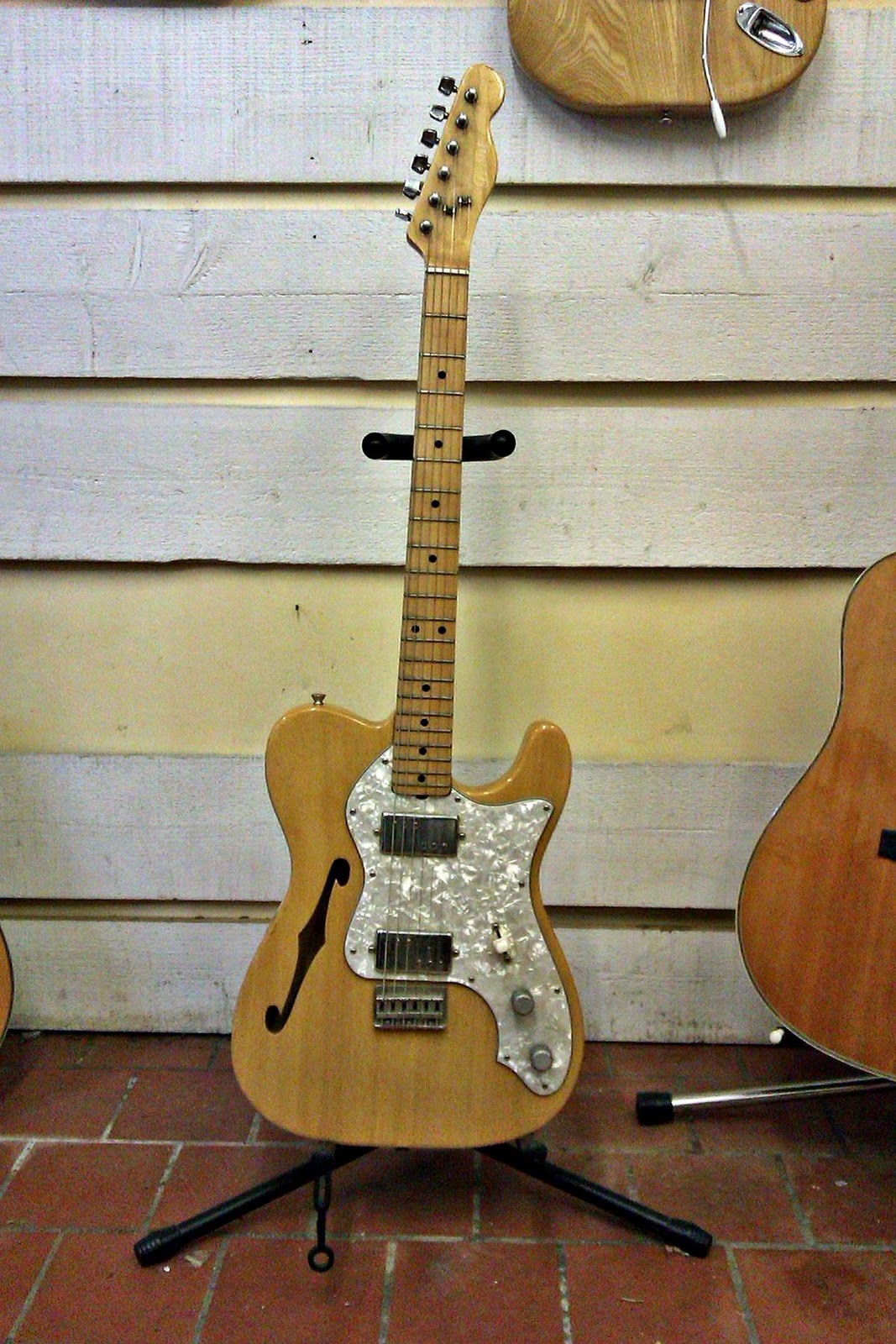
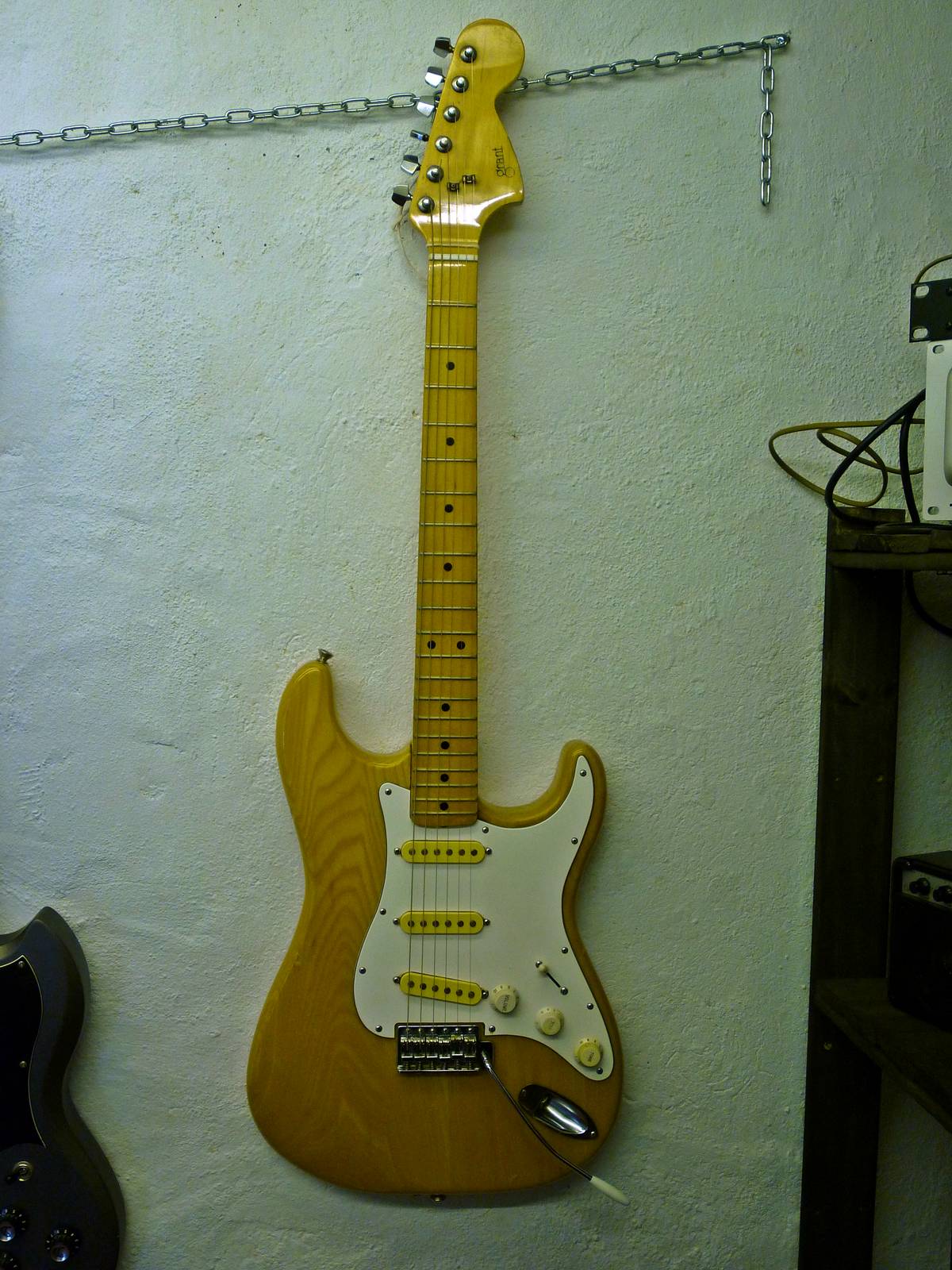
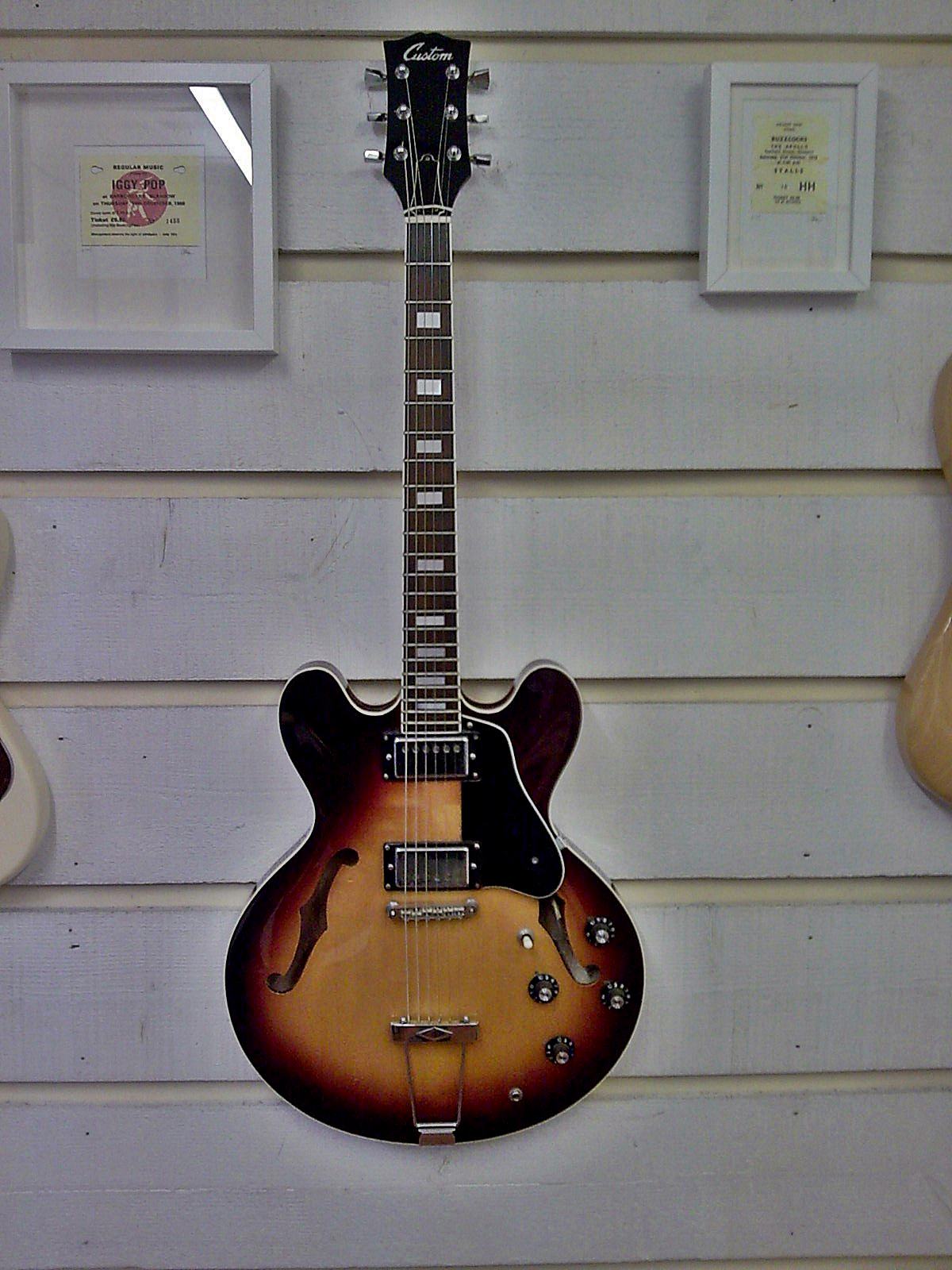
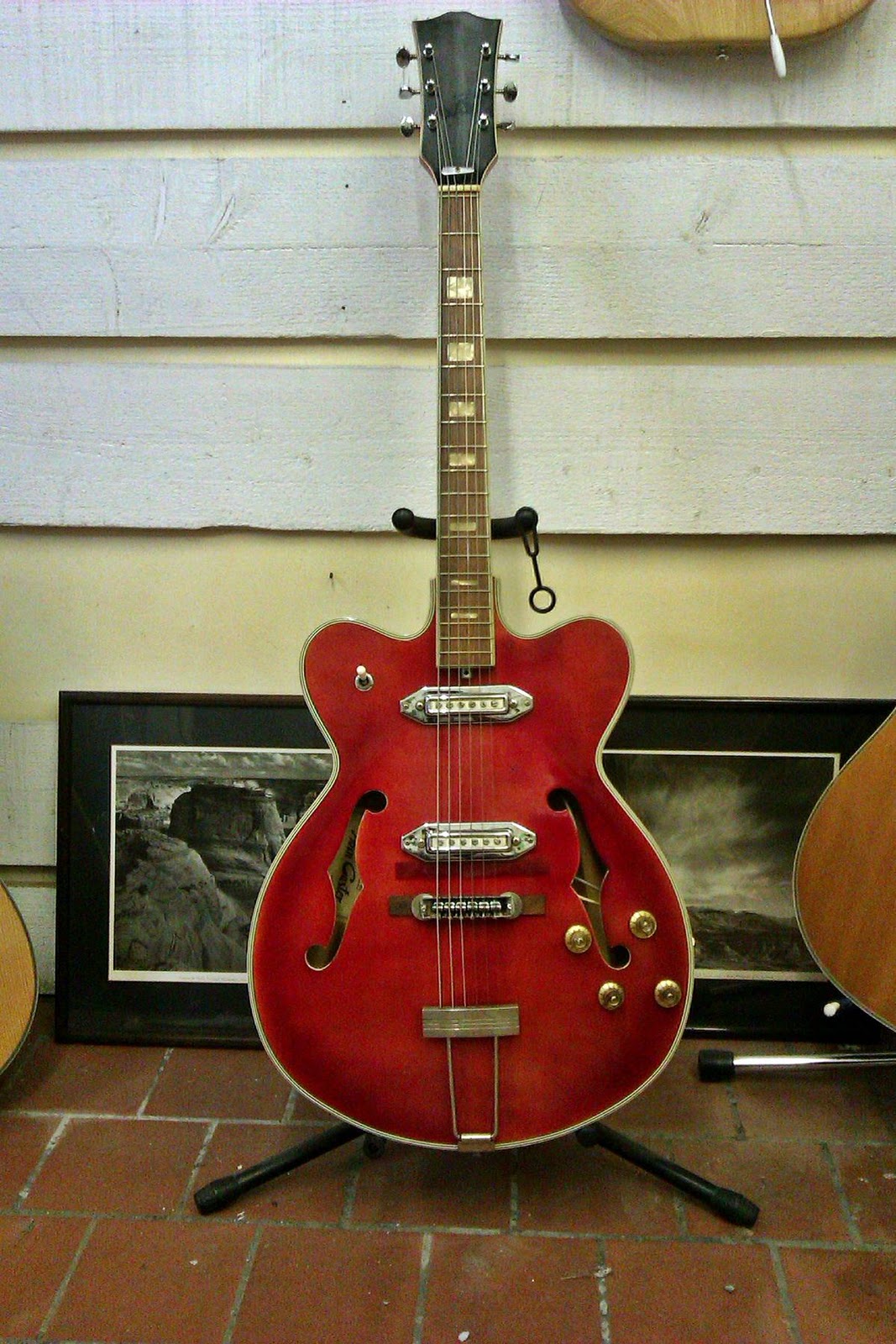
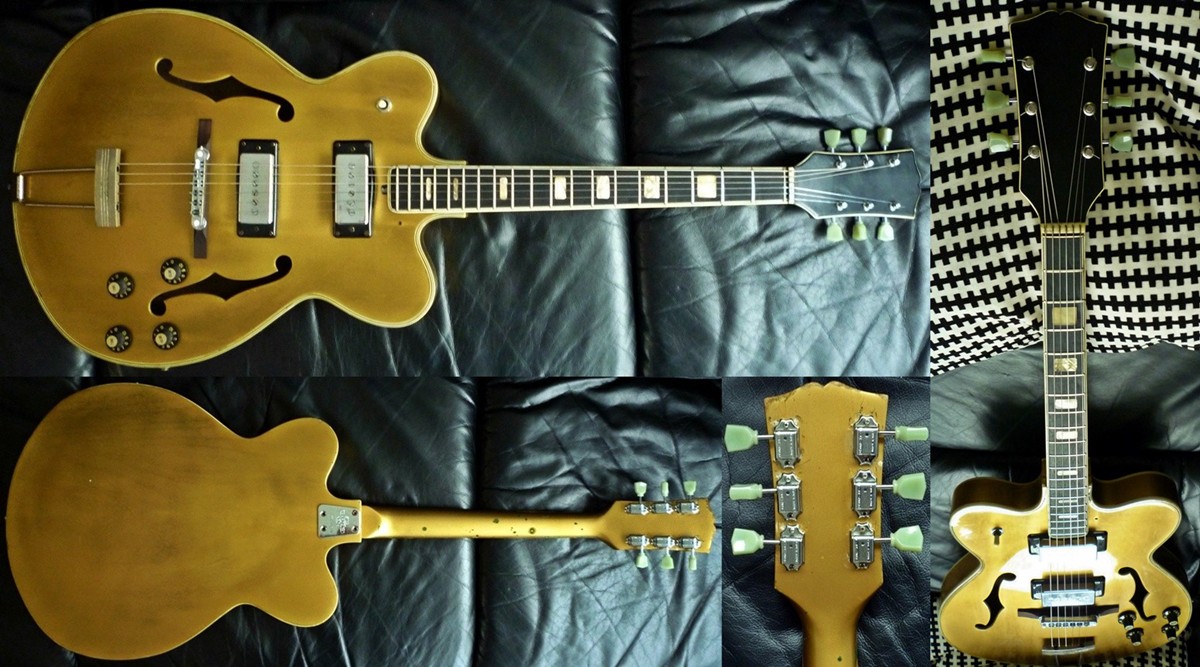
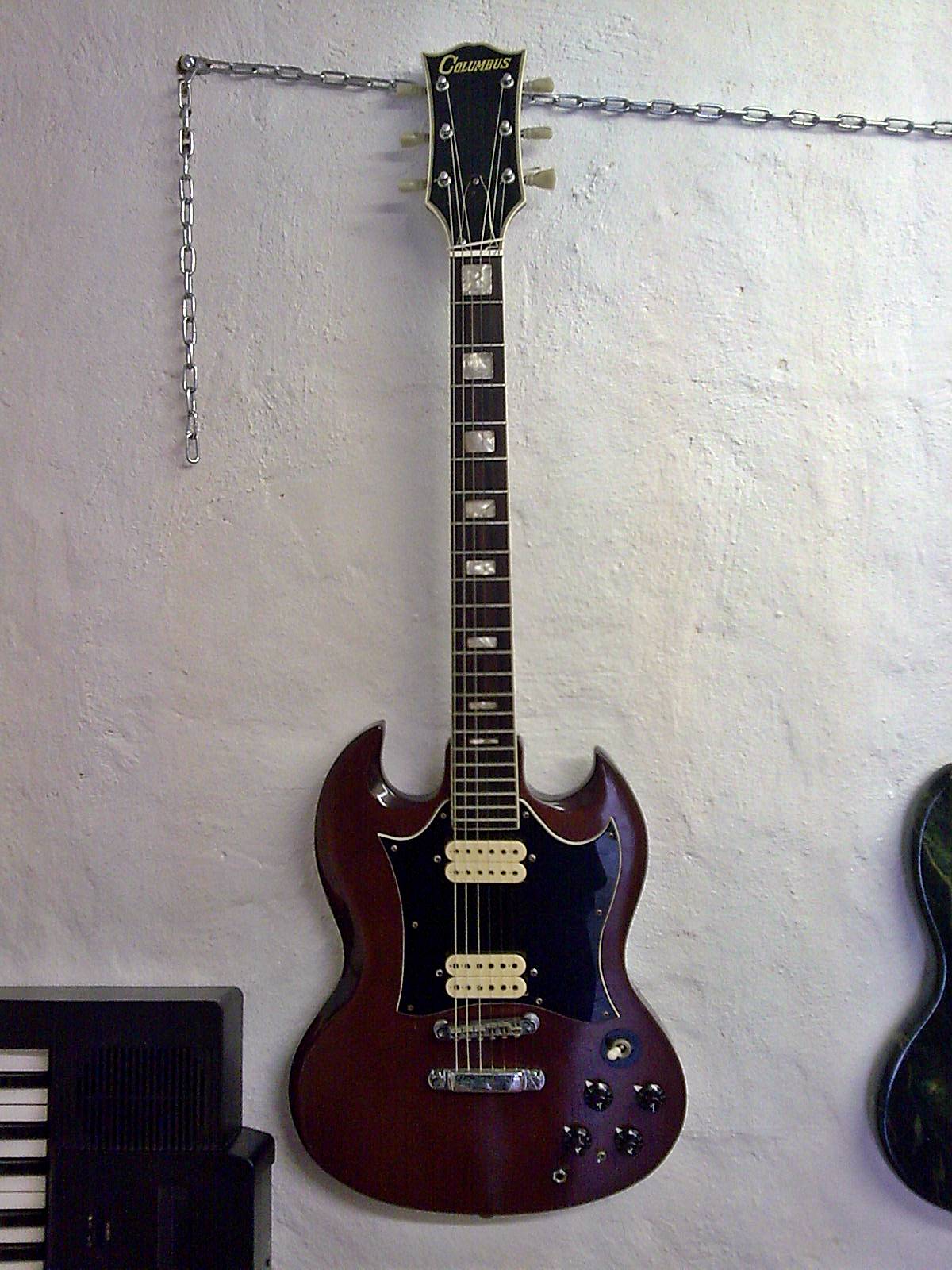
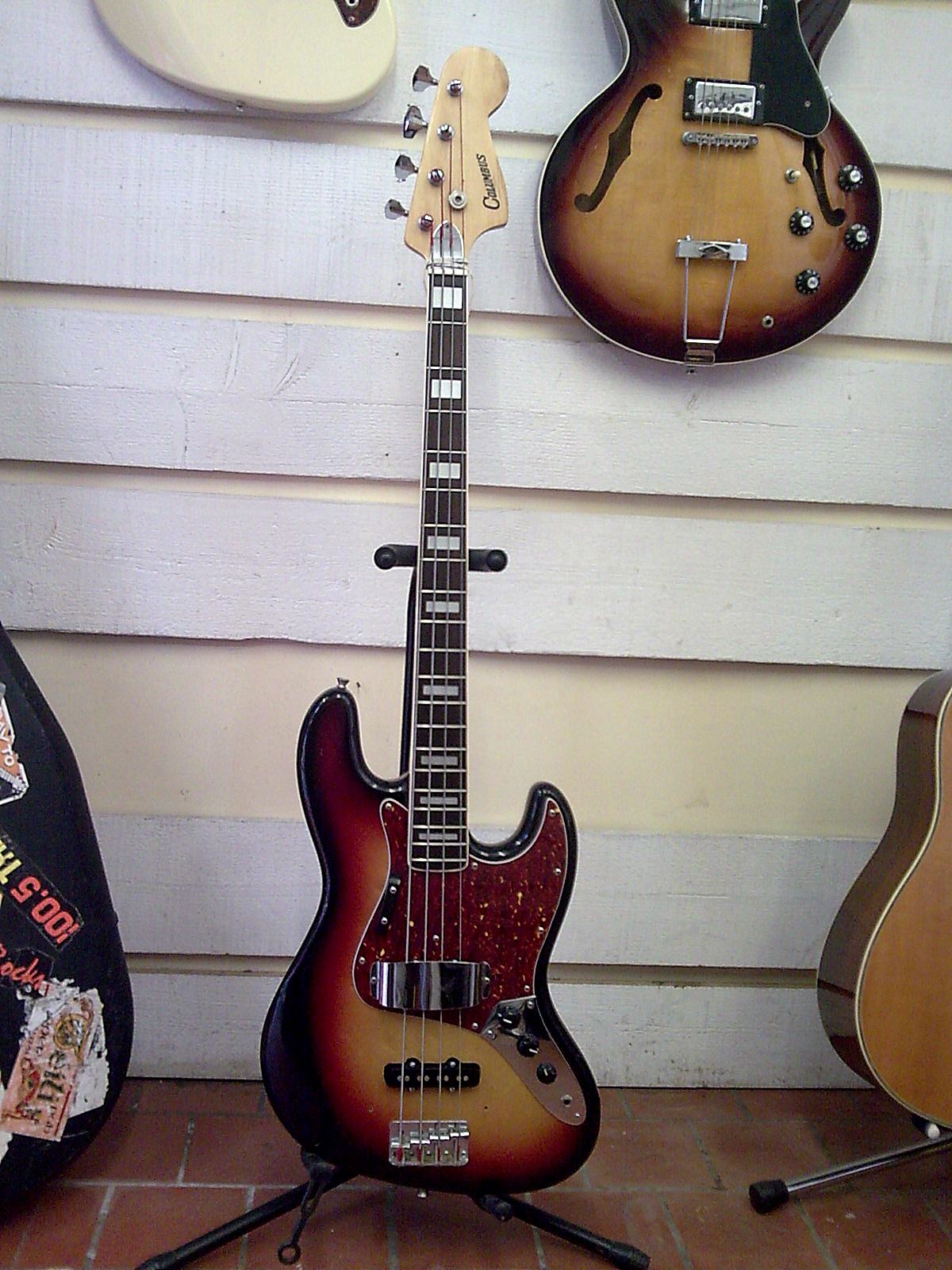
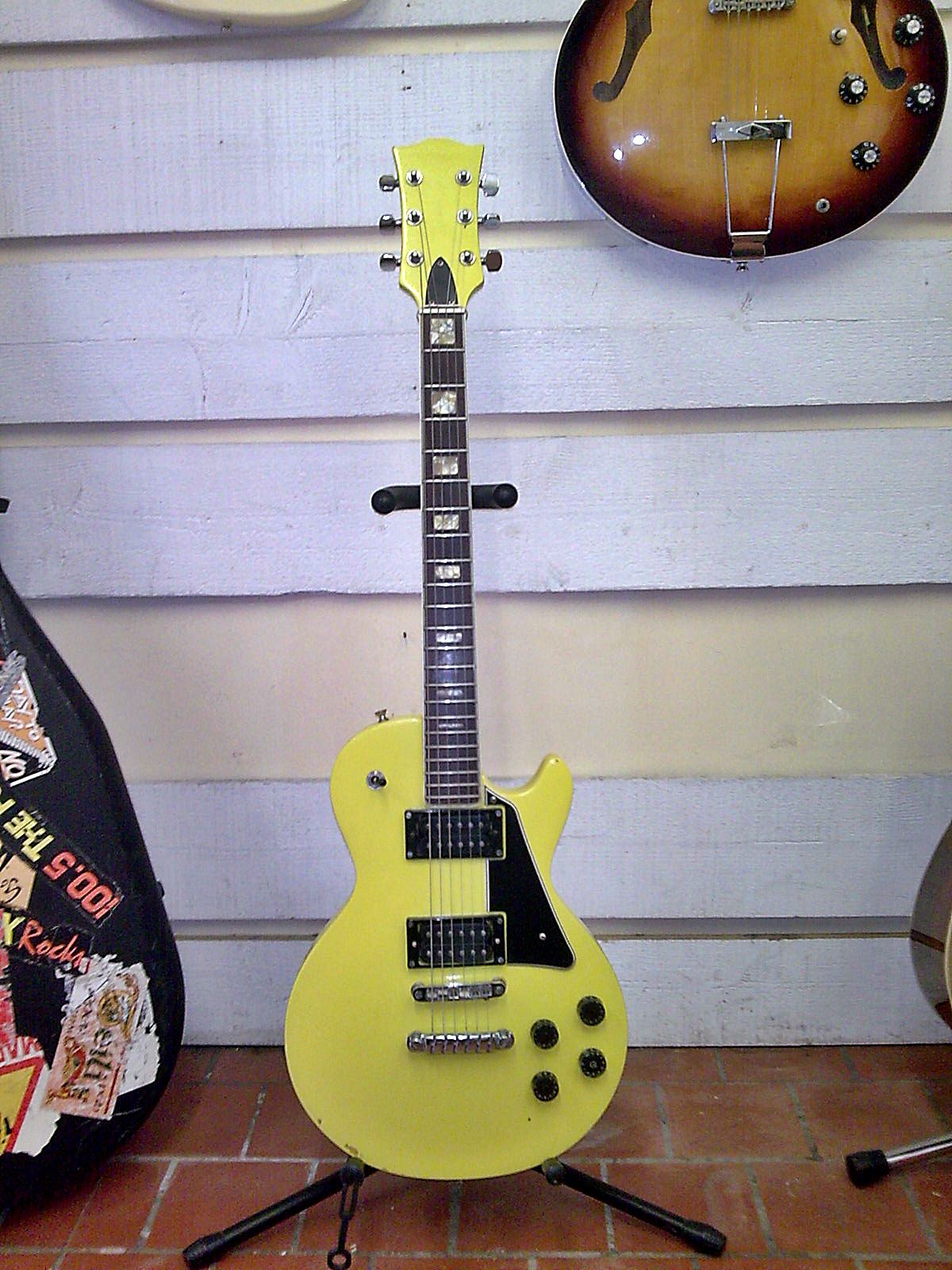
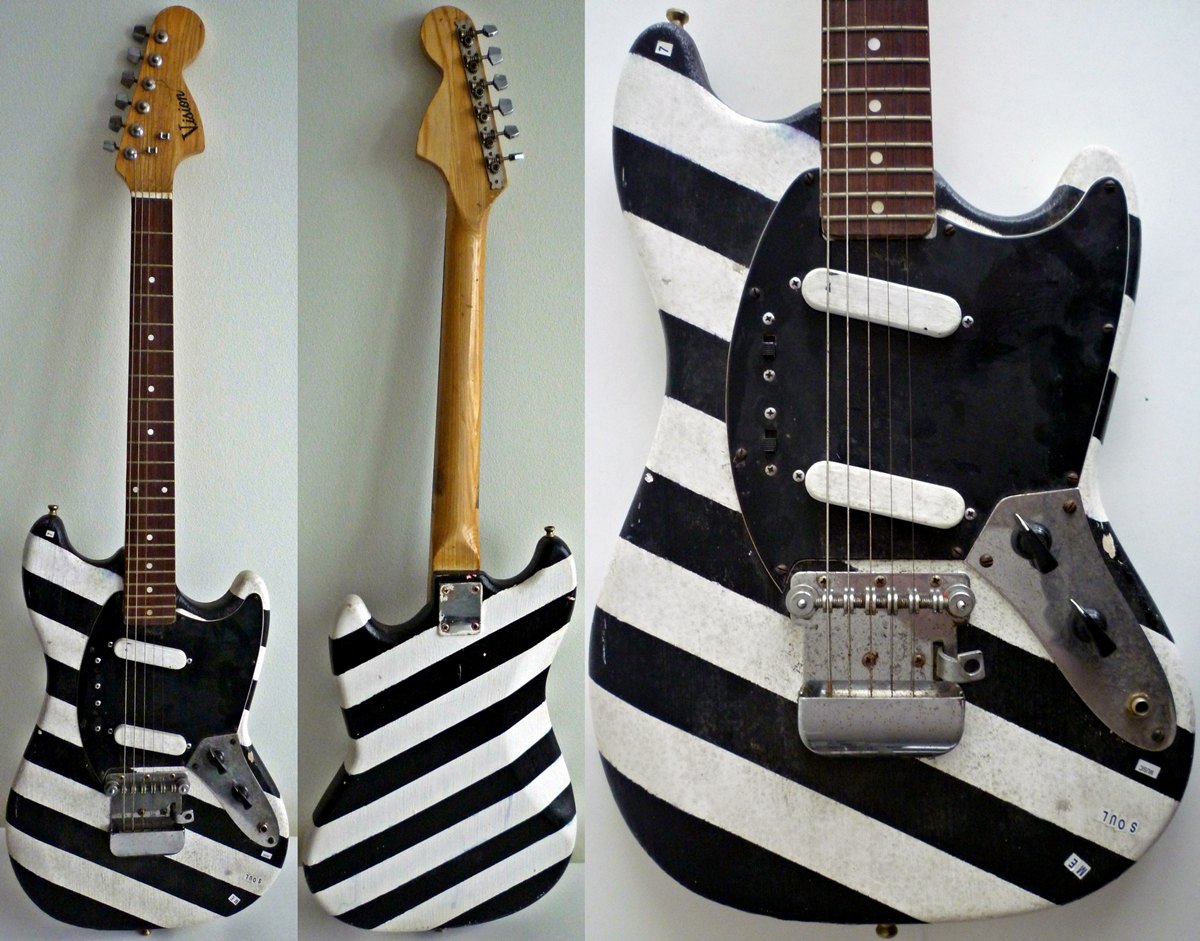

I've never owned anything with real WRHB in it but by all repors the reissue pickups sound nothing like them. These just sound like regular HB's in a semi-hollowbody.22danielp wrote: Question, how do the WRHBs in the Telecaster compare to the originals?

Thanks for dropping that knowledge... it was a good read.UlricvonCatalyst wrote: I was about to be the guy harping on about the 'lawsuit' misnomer, but I see someone else beat me to it....
I'm not sure I agree with the generalistaion about microphonic pickups, though. I too have had countless lawsuit guitars over the years (see my avatar for my first one) and, certainly, the electronics tend to be lower-grade than their US equivalents but I've played a few that sound great and have no issues (unless you consider the ubiquitous mini-pots an issue - to me it's a cosmetic issue at best and fairly easy to sort out if you can't live with it).
I think the key to the 'lawsuit' guitars is the timeline. In the '60s, when the Japanese started emulating American guitars they were pretty crude. Over time they became increasingly refined to the point where, other than some inferior hardware/electronics they really were comparable to their USA equivalents in many cases....although many of the Gibson copies had bolt-on necks which was never going to cut it for the average Gibson snob.
If you can find a 1977-1978 lawsuit geetar ('Ibanez' dropped the lawsuit headstock in '78), you can bet it'll be a good one - after all, Fuji-Gen, Matsumoku and Tokai had been churning them out for at least a decade by that point and had become a lot better at it. Then again, the brand-name on the headstock will play a part too. Alongside the premium brands like Ibanez, Aria, Tokai, Greco, Orville, etc. many 'budget' instruments were made with drastically lower appointments. These were often shipped with blank headstocks, allowing distributors (or even retailers) to apply their own marque, resulting in a bewildering array of names that any amount of googling may or may not help with. This is actually good news if you're in the market for these guitars, as the dearth of information out there tends to keep the prices low.
I could post more pics of obscure brands, but I don't want to hog the thread....
A wee caveat emptor before I go: I've seen a growing number of Korean guitars being passed off as 'lawsuit' models in recent years. I don't know whether this is really a problem or not as budget Japanese ones can still be had for cheap a lot of the time, but there are some eBay sellers who aren't above offering a Hondo II or something as "made in the Ibanez factory" to capitalise on the hype. I'd say that unless you're absolutely sure the guitar in question is a genuine lawsuit geetar, paying more than about £100 isn't advisable.

Ah right... I've never owned or played a vintage one before... but i've heard one and it sounded fantastic. thank you for the insight.MT wrote:I've never owned anything with real WRHB in it but by all repors the reissue pickups sound nothing like them. These just sound like regular HB's in a semi-hollowbody.22danielp wrote: Question, how do the WRHBs in the Telecaster compare to the originals?
Danocaster reckons that the Lollar Regals with 1MB pots sound pretty close to vintage WRHB. Not the same, but still pretty good.



I can corroborate that the split humbuckers in my Ibanez Tele Deluxe, although they had the appearance of WRHBs, were just regular humbuckers - no CuNiFe; no WRHB "magic." They did sound pretty great, though. Oh, and oddly enough, they were standard humbucker size, not oversized like the real WRHBs... BTW said Ibby Deluxe now belongs to Contiki and is pictured earlier in this thread.MT wrote:I've never owned anything with real WRHB in it but by all repors the reissue pickups sound nothing like them. These just sound like regular HB's in a semi-hollowbody.22danielp wrote: Question, how do the WRHBs in the Telecaster compare to the originals?
Danocaster reckons that the Lollar Regals with 1MB pots sound pretty close to vintage WRHB. Not the same, but still pretty good.


that twincaster looks like the one in my room. also is that zebrastang for sale?UlricvonCatalyst wrote:I was about to be the guy harping on about the 'lawsuit' misnomer, but I see someone else beat me to it....serial wrote:As a bit of legal/guitar trivia, there was ONE lawsuit filed-in the Eastern District of PA (Fed Ct-Philadelphia), Gibson v. Elger. The basis of the lawsuit was that Elger (Ibanez) infringed on Norlin/Gibson's open book style headstock shape. I've read the complaint-nothing actually happened with the suit other than the filing of the complaint, but Ibanez made the business decision to go ahead and change their design.
Lots of guitars are called "Lawsuit" guitars, but in reality, only the ones with Gibson-style heads were subject to thd original suit that went nowhere.
Funny to see some of the wild narratives on eBay. . The term has been used forever to refer to all 70s copy guitars. The other myth is that all or most "lawsuit" guitars are better than what they're copying. That's rarely if ever actually the case in my experience (and I've owned and experienced tons of both), but there's something inherently "fun" about playing them. The best of the copies can be better than poor examples of the Gibsons or Fenders they emulate, but the electronics pickups are often inferior ( usually pretty microphonic). The best "lawsuit" guitar I owned was a killer '75 Ibanez Destroyer. I miss that guitar...
I'm not sure I agree with the generalistaion about microphonic pickups, though. I too have had countless lawsuit guitars over the years (see my avatar for my first one) and, certainly, the electronics tend to be lower-grade than their US equivalents but I've played a few that sound great and have no issues (unless you consider the ubiquitous mini-pots an issue - to me it's a cosmetic issue at best and fairly easy to sort out if you can't live with it).
I think the key to the 'lawsuit' guitars is the timeline. In the '60s, when the Japanese started emulating American guitars they were pretty crude. Over time they became increasingly refined to the point where, other than some inferior hardware/electronics they really were comparable to their USA equivalents in many cases....although many of the Gibson copies had bolt-on necks which was never going to cut it for the average Gibson snob.
If you can find a 1977-1978 lawsuit geetar ('Ibanez' dropped the lawsuit headstock in '78), you can bet it'll be a good one - after all, Fuji-Gen, Matsumoku and Tokai had been churning them out for at least a decade by that point and had become a lot better at it. Then again, the brand-name on the headstock will play a part too. Alongside the premium brands like Ibanez, Aria, Tokai, Greco, Orville, etc. many 'budget' instruments were made with drastically lower appointments. These were often shipped with blank headstocks, allowing distributors (or even retailers) to apply their own marque, resulting in a bewildering array of names that any amount of googling may or may not help with. This is actually good news if you're in the market for these guitars, as the dearth of information out there tends to keep the prices low.
Case in point: my two Grants. Grant was a shop in Edinburgh who imported Japanese guitars with their own name on the headstock. They later opened a shop (or possibly two) in Glasgow. From what I've been able to piece together over the years, their guitars probably came from the Fuji-Gen Gakki plant. One look at the Greco Thinline and Aspen Strat seen elsewhere in this thread should confirm they all originated from the same place, using the same materials (give or take some hardware choices).
Going back a lot further, I recently unearthed this late '60s Antoria Twin-Caster, now enjoying a happy life in East Kilbride:
The Zebrastang:
I could post more pics of obscure brands, but I don't want to hog the thread....
A wee caveat emptor before I go: I've seen a growing number of Korean guitars being passed off as 'lawsuit' models in recent years. I don't know whether this is really a problem or not as budget Japanese ones can still be had for cheap a lot of the time, but there are some eBay sellers who aren't above offering a Hondo II or something as "made in the Ibanez factory" to capitalise on the hype. I'd say that unless you're absolutely sure the guitar in question is a genuine lawsuit geetar, paying more than about £100 isn't advisable.
